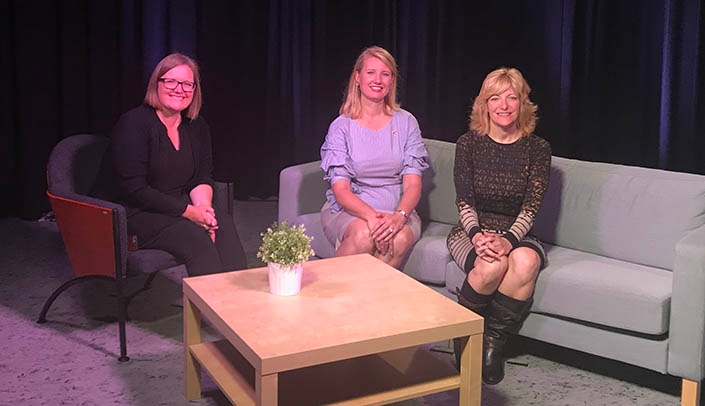What a woman does while pregnant affects the health of her unborn baby — we all know that, right?
But now, two UNMC scientists, Ann Anderson Berry, M.D., and Corrine Hanson, Ph.D., have embarked on a study that may show this effect goes back even farther — and is influenced not only by the mother, but by the father, as well.
“What you do even before you get pregnant, and what your partner is doing, has an impact,” said Dr. Hanson, associate director of medical nutrition, in the College of Allied Health Professions.
“We think that fetal programming and maternal and paternal health, even prior to conception, has a significant impact on not only pregnancy outcomes and childhood outcomes, but likely on adult outcomes for that fetus,” said Dr. Anderson Berry, professor of neonatology.
And these UNMC faculty are pursuing this research in a unique international collaboration with the University of Agder, in Norway, where Nina Overby, Ph.D., is principal investigator of the project — with funding of a little over $1 million, in U.S. dollars, to establish a Priority Research Center on Lifecourse Nutrition.
The researchers will utilize existing databases and bioinformatics, as well as follow human subjects.
Why are Norway and Nebraska teaming up?
Each has a lot to learn from the other, in a study like this. Collaborations across different countries have the advantage of increasing the cultural and ethnic diversity in the populations studied, Dr. Anderson Berry said. The collaborative Priority Research Center aims to co-create high quality nutrition research in a lifecourse perspective relevant for policymakers and stakeholders regionally, nationally and internationally.
According to Dr. Hanson, “The vision of the center is that children and adolescents grow up eating a healthy diet, learning the skills to maintain this throughout their lives, while in parallel securing the health potential for future children. Diet today- health of tomorrow! Our mission is to conduct high quality research to stimulate, promote and advocate a healthy food environment and improve the individual’s diet throughout the lifecourse.”
Both countries have room for public health initiatives. “It feels a little bit like in some segments of our population we’re cycling downwards instead of up,” Dr. Anderson Berry said. “And so the thought of this (project) is to break that cycle. To change the trajectory of our most at-risk populations.”
They hope their findings can be utilized on a population level, in order to enable that change.

Given the very different social and environmental factors in terms of access to healthy foods, and other basic life needs, especially among disadvantaged populations, I wonder how outcomes of this study may help positively influence supportive social and public health policies in the United States. Food is grown under much tighter regulations in Europe, and use of GMO and certain pesticides/fertilizers is much different as well. I wonder how all this can be controlled for. Super interesting and important study! Congrats! All the best to you!